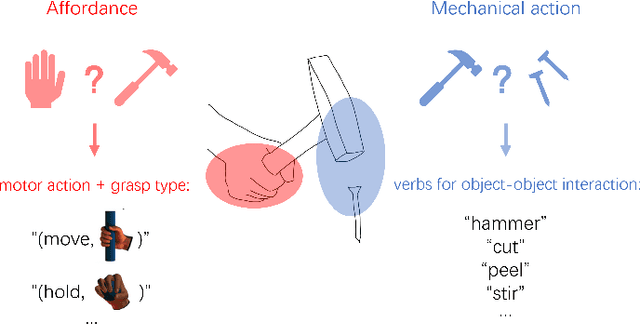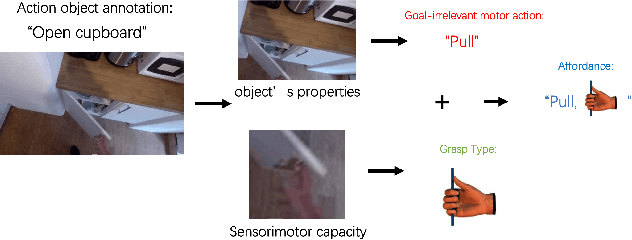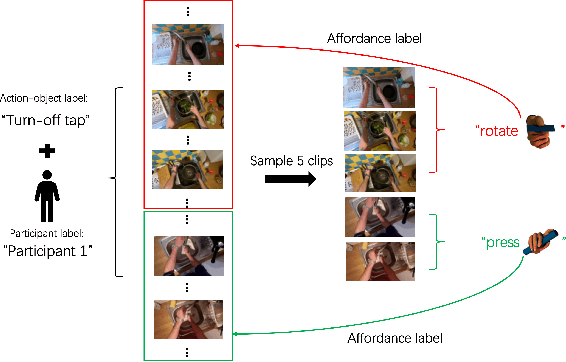Zecheng Yu
Ego-Exo4D: Understanding Skilled Human Activity from First- and Third-Person Perspectives
Nov 30, 2023



Abstract:We present Ego-Exo4D, a diverse, large-scale multimodal multiview video dataset and benchmark challenge. Ego-Exo4D centers around simultaneously-captured egocentric and exocentric video of skilled human activities (e.g., sports, music, dance, bike repair). More than 800 participants from 13 cities worldwide performed these activities in 131 different natural scene contexts, yielding long-form captures from 1 to 42 minutes each and 1,422 hours of video combined. The multimodal nature of the dataset is unprecedented: the video is accompanied by multichannel audio, eye gaze, 3D point clouds, camera poses, IMU, and multiple paired language descriptions -- including a novel "expert commentary" done by coaches and teachers and tailored to the skilled-activity domain. To push the frontier of first-person video understanding of skilled human activity, we also present a suite of benchmark tasks and their annotations, including fine-grained activity understanding, proficiency estimation, cross-view translation, and 3D hand/body pose. All resources will be open sourced to fuel new research in the community.
Fine-grained Affordance Annotation for Egocentric Hand-Object Interaction Videos
Feb 10, 2023



Abstract:Object affordance is an important concept in hand-object interaction, providing information on action possibilities based on human motor capacity and objects' physical property thus benefiting tasks such as action anticipation and robot imitation learning. However, the definition of affordance in existing datasets often: 1) mix up affordance with object functionality; 2) confuse affordance with goal-related action; and 3) ignore human motor capacity. This paper proposes an efficient annotation scheme to address these issues by combining goal-irrelevant motor actions and grasp types as affordance labels and introducing the concept of mechanical action to represent the action possibilities between two objects. We provide new annotations by applying this scheme to the EPIC-KITCHENS dataset and test our annotation with tasks such as affordance recognition, hand-object interaction hotspots prediction, and cross-domain evaluation of affordance. The results show that models trained with our annotation can distinguish affordance from other concepts, predict fine-grained interaction possibilities on objects, and generalize through different domains.
Precise Affordance Annotation for Egocentric Action Video Datasets
Jun 11, 2022



Abstract:Object affordance is an important concept in human-object interaction, providing information on action possibilities based on human motor capacity and objects' physical property thus benefiting tasks such as action anticipation and robot imitation learning. However, existing datasets often: 1) mix up affordance with object functionality; 2) confuse affordance with goal-related action; and 3) ignore human motor capacity. This paper proposes an efficient annotation scheme to address these issues by combining goal-irrelevant motor actions and grasp types as affordance labels and introducing the concept of mechanical action to represent the action possibilities between two objects. We provide new annotations by applying this scheme to the EPIC-KITCHENS dataset and test our annotation with tasks such as affordance recognition. We qualitatively verify that models trained with our annotation can distinguish affordance and mechanical actions.
 Add to Chrome
Add to Chrome Add to Firefox
Add to Firefox Add to Edge
Add to Edge